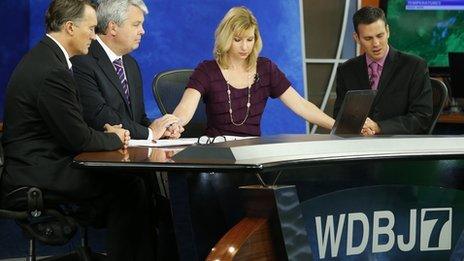'Google profits from my daughter's death'
- Published
'No parent wants to watch their child die online'
US journalist Alison Parker was shot dead along with her cameraman while broadcasting live in 2015 - her murderer then posted the footage online. Her father, Andy, tells the Victoria Derbyshire programme about his campaign to hold social media companies accountable for the material they host.
The breakfast TV interview about tourism in the town of Moneta, Virginia, was just starting when it was suddenly interrupted by the sound of gunfire.
Alison, 24, and cameraman Adam Ward, 27, who both worked for cable channel WDBJ, were killed. Their interviewee survived.
The gunman, a disgruntled former employee called Vester Lee Flanagan, filmed their final moments then posted them on social media - footage which shocked the world. He later shot himself.
Alison's father, Andy, has vowed never to watch it.
"Believe me, people ask if I want to see it fairly regularly," he says. "The other day a guy was trying to tell me about it. It's people not thinking. People are so callous."
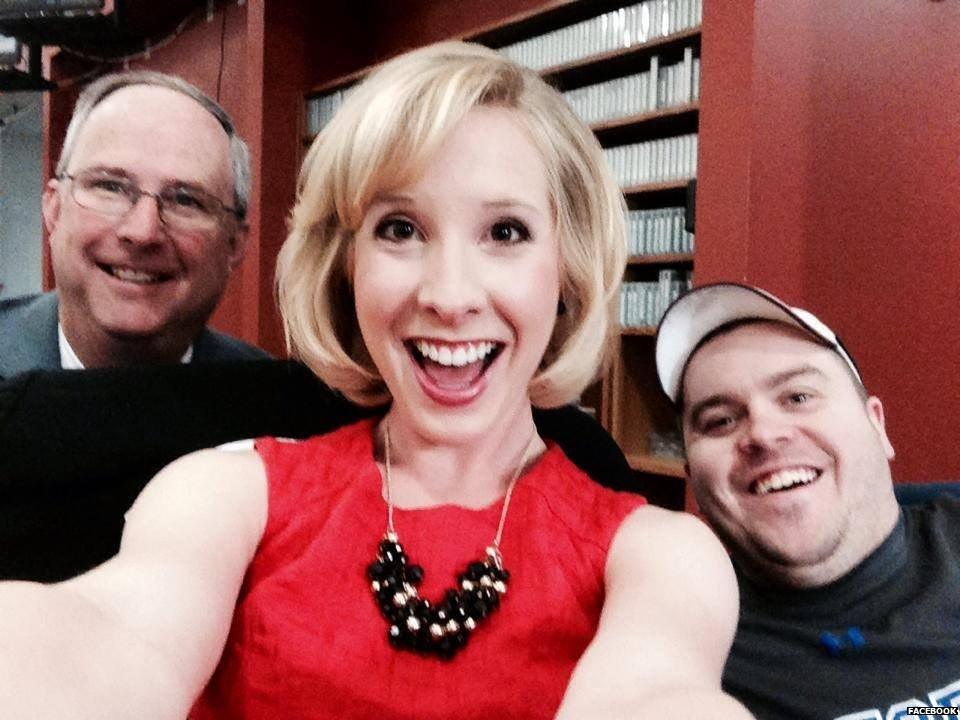
Alison Parker and Adam Ward (R) worked together most days
But search engine Google has told him he has to report every video to get them removed from the internet.
"Imagine a human being, someone saying, 'You have to watch a video of your daughter's murder and tell us why we should take this down'. Who would do that other than someone like Isis? Yet Google does it on its platforms."
Worse still, Andy's campaigning to end gun violence has led to him being a target for online abuse.
Comments such as "if she only had a gun to protect herself" appear on articles he has written, conspiracy theorists have posted a news report about the celebration of Alison's life calling it "fake" on YouTube, and he has received death threats.
A Google search of Alison's name reveals a number of videos from conspiracy theorists including claims she had had plastic surgery and was living a secret life in Israel.
Andy refuses to engage with trolls, saying: "There's not a lot you can do with keyboard warriors, you won't change their minds".
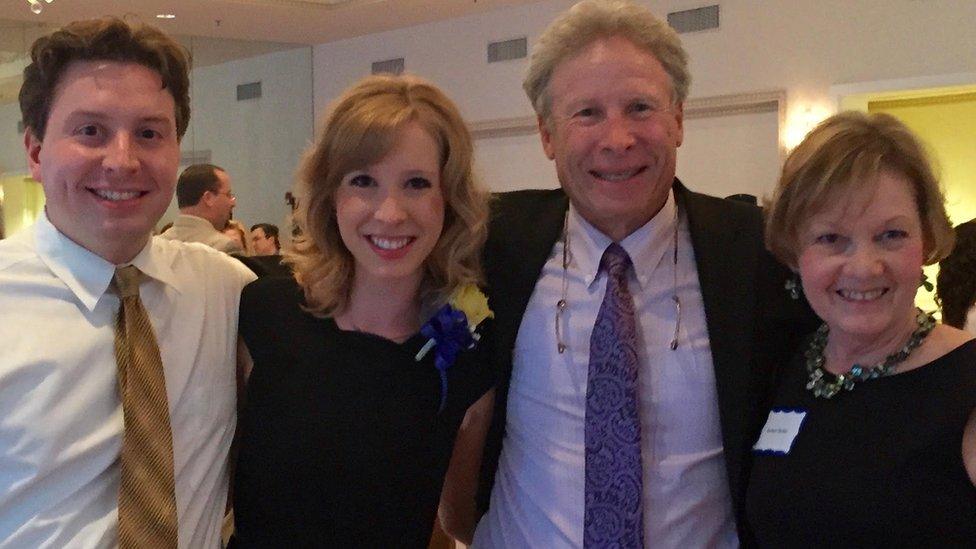
He blames Google and social media platforms for allowing them to share the material. He believes Facebook, Google and Twitter should be subject to the same regulation as news providers in the US.
"There was a time there would be an advert and autoplay. Even though they have taken down the ads, Google still makes money every time you click. They want you to keep clicking. They make money from your data," he explains.
"Google profits from my daughter's death and I won't accept it. What can they do [to me]? I have lost everything precious that I've had. I am not afraid of them."
He is now working with Georgetown University Civil Rights clinic to "drop the hammer on Google" and urge them to adequately monitor their own platforms.
If it again refuses, members of Congress should step in and provide oversight, he says.
"We will say you can either work with us and take this stuff down - if you don't we have no problem taking you to court. No-one has done it. We will hold them accountable. Senators are also supporting it. We will hold their feet to the fire."
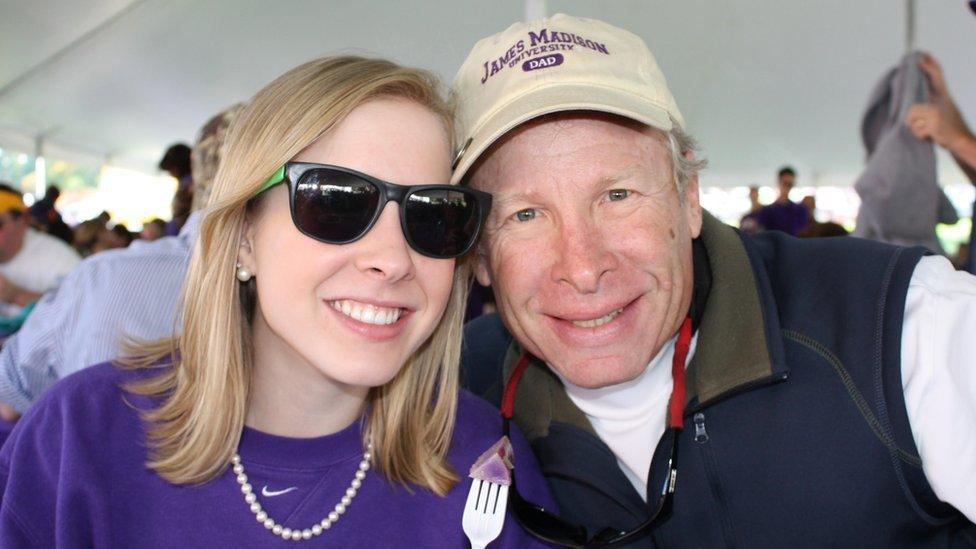
Andy describes Alison as a "beautiful person and a kind soul"
Andy is also campaigning for what he calls sensible reforms to gun laws in order to keep them out of the hands of mentally unstable people.
"I would love it if the US followed British or Australian gun control laws," he says. "There was the first gun control measure passed in two decades this week. Gun control was a number two or three issue in the mid-terms - I think there will be reform in my lifetime."
Andy describes his daughter as a beautiful person and a kind soul. She broadcast daily to 60,000 people and produced award-winning documentaries - she won an Emmy posthumously for best live reporting.
"There was a saying I saw a while back, 'There are some that bring a light so bright to the world that even after they've gone a light remains'. She impacted and affected so many people, she inspired so many people. She touched so many people's lives.
"I want to keep the fuel for the light going. We think about her all the time. I talk with her every day."
YouTube says its guidelines prohibit content including gratuitous violence, nudity and illegal activities and hate speech. It says when material is graphic it applies age restrictions which require users to sign in.
A spokesman for YouTube, whose parent company is Google, said: "Our hearts go out to the victim and her family. To protect the community, YouTube has clear policies that outline what content is not acceptable to post and we remove videos violating these policies when flagged to us.
"In some cases, we age-restrict flagged material that, while not in violation of those guidelines, contains images that may be unsuitable for younger users."

Follow the BBC's Victoria Derbyshire programme on Facebook, external and Twitter, external - and see more of our stories here.
- Published27 August 2015
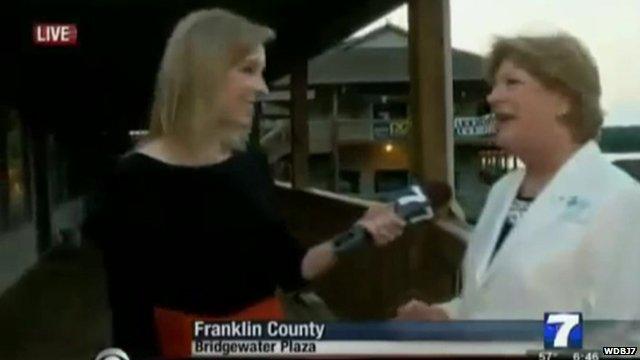
- Published26 August 2015
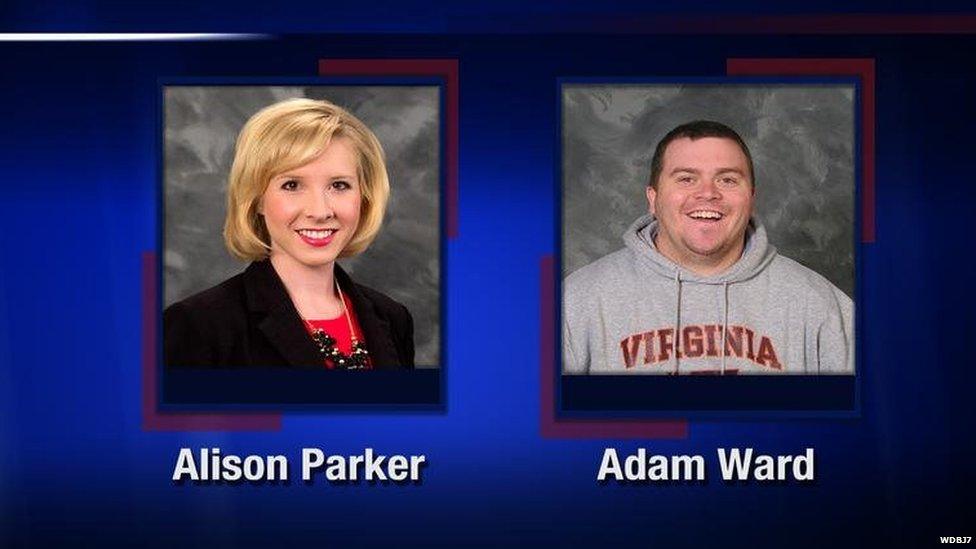
- Published28 August 2015
